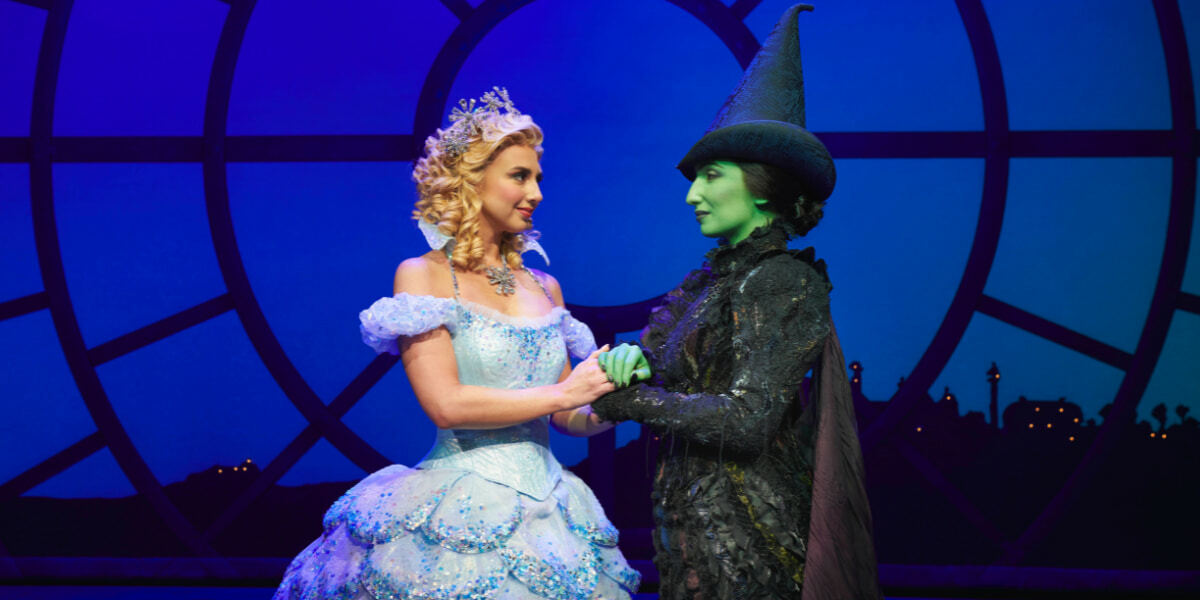Choosing Your Theatrical Companion
Posted on
| By
London Theatre Direct
(Updated on Sep 2, 2025)
So you're sat in a theatre. The music is good. The acting is good. The staging is good. But … something is wrong. You try to detect a reason for this niggling imperfection. But your usual suspects pass inspection: the auditorium is at an acceptable temperature; you're not pre-occupied with some unrelated concern; the food you had for lunch was in date. And then you find yourself coming to the sad realisation that your problem is in fact the person – or, the people – with whom you are sat.

Perhaps they're trying to whisper to you, or not really watching the show – or maybe you suspect that they will criticise the performance during the interval, and effectively kill the mood. There's nothing worse than choosing the wrong theatrical companion - but how do you ever chose the right one?
There are a number of essential things to look out for when choosing your ideal theatrical companion. They are as follows:
The candidate must be enthusiastic.
If you are likely to burst into an excited and lengthy session of rambling after the show, you'll want your companion to be joining in. Sitting with somebody who lacks enthusiasm could seriously diminish your own spirits.
A theatrical companion must be well versed in Theatre Etiquette.
Moreover, the ideal companion will have read London Theatre Direct's article on Theatre Etiquette.
No snobs.
Being sat next to a theatre snob, on the other hand, is (for lack of a better word) an ick. Unless you're seeing something which you know they will like, you may spend the whole show worrying about their opinion. Think twice before you take a dramatic nitpicker.
Mood matters!
If you are going to see a show that's on the serious, thoughtful side like Phantom Of The Opera or Cabaret - do not bring someone who can't sit still without being incessantly silly. The opposite also applies: a show that doesn't take itself too seriously, like The Play That Goes Wrong, should be enjoyed freely - so bring someone who's up for a laugh!
Smaller issues can be just as important to look out for:
1. Bladder Control
It might feel like an awkward subject to raise with a potential candidate, but it’s one worth keeping in mind. A simple test could be devised to ensure they can comfortably sit through an act without interruption. After all, few things break the atmosphere more than someone squeezing past you for the third time just as Éponine begins “On My Own.”
2. The Laugh
Without wanting to sound mean, somebody with an extremely annoying laugh might not be the best person to take to a comedy like The Book of Mormon. Please note: this only applies in extreme cases.
3. The Talker
Some people just can't stop talking. If they are going to sit through the whole of Les Mis and talk to you instead of watching, leave them at the foyer.
Of course, there are also a few perks worth looking out for when choosing your theatre companion. These small but meaningful qualities can be the difference between an acceptable partner and a truly great one.
If you’re making a day of it in London, for example, it helps if your companion shares at least a few interests beyond theatre. That way, you can fill the hours around the performance with activities you’ll both genuinely enjoy.
An excellent candidate will also rise to the occasion - literally - by giving a standing ovation with you, even if you’re the only two in the entire audience to do so. That kind of solidarity is priceless.
And finally, the ideal companion is someone who doesn’t take themselves too seriously while still respecting the artform. They can laugh at the little mishaps, but they know when it’s time to lean in and appreciate the magic on stage.
If you find someone who fits most of these qualities, consider yourself lucky. A good theatrical companion is like a lifeboat in the stormy ocean of life - or the stormy ocean of theatre, if there’s much difference at all.
All that’s left is to sit back, relax, and enjoy the show!